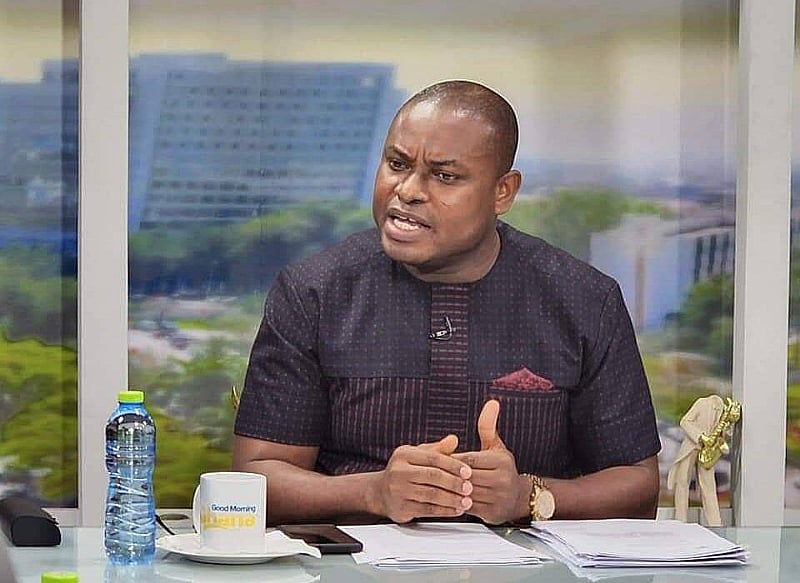The political landscape in Ghana is heating up with the recent utility tariff adjustments announced by the Public Utilities Regulatory Commission (PURC). The New Patriotic Party (NPP), now in opposition, has launched a scathing attack on the ruling National Democratic Congress (NDC), accusing them of insensitivity to the plight of Ghanaians and a blatant betrayal of their campaign promises to alleviate the cost of living. Richard Ahiagbah, the NPP’s National Communications Director, has spearheaded this offensive, arguing that the NDC’s actions have worsened economic conditions for ordinary citizens. He points to the newly approved 14.75% increase in electricity tariffs and the 4.02% hike in water tariffs as evidence of the NDC’s failure to manage the economy effectively and protect Ghanaians from escalating living expenses. Ahiagbah contends that the NDC’s attempts to shift blame onto the previous NPP administration are disingenuous and a desperate attempt to deflect responsibility for their own shortcomings.
The core of the NPP’s argument rests on the NDC’s historical record on utility tariff adjustments. Ahiagbah highlights what he describes as a staggering 294.5% cumulative increase in electricity tariffs between 2009 and 2016, a period during which the NDC held power. This, he argues, demonstrates a clear pattern of imposing substantial cost burdens on Ghanaians, directly contradicting their current claims of concern for the public’s economic well-being. The NPP’s communication strategy aims to portray the NDC as hypocritical and untrustworthy, emphasizing the disparity between their campaign rhetoric and their actions in government. By drawing attention to the NDC’s past performance, the NPP seeks to undermine their credibility and position themselves as a more responsible alternative.
The NDC, on the other hand, attributes the current tariff hikes to a confluence of external factors beyond their control. The PURC, in its official statement, cited exchange rate volatility, inflation, the composition of the electricity generation mix, and the rising cost of fuel, particularly natural gas, as the primary drivers of the price adjustments. This explanation seeks to frame the tariff increases as unavoidable consequences of global economic pressures rather than a result of government policy. The NDC’s narrative emphasizes the complexity of managing the energy sector in a volatile economic environment and implicitly suggests that the NPP’s criticism is simplistic and politically motivated.
The clashing narratives between the NPP and the NDC underscore the deep political divisions within Ghana. The NPP’s aggressive stance reflects their strategic objective of exploiting public discontent over rising living costs to regain political ground. By painting the NDC as insensitive and incompetent, they aim to capitalize on the public’s economic anxieties and present themselves as a more viable option for future governance. The NDC, in turn, is attempting to manage the political fallout by attributing the tariff hikes to external factors, thereby mitigating the potential damage to their public image. This political tug-of-war plays out against the backdrop of increasing economic hardship for many Ghanaians, who bear the brunt of rising utility costs.
The debate surrounding the tariff increases also raises broader questions about the management of Ghana’s energy sector. The PURC’s explanation highlights the vulnerability of the Ghanaian economy to external shocks, particularly fluctuations in global commodity prices and exchange rates. This underscores the need for long-term strategies to enhance the resilience of the energy sector and shield consumers from volatile global markets. Diversifying energy sources, investing in renewable energy technologies, and improving energy efficiency are crucial steps towards achieving greater energy security and affordability. Furthermore, enhancing transparency and accountability in the regulatory process is essential to build public trust and ensure that tariff adjustments are justified and equitable.
Ultimately, the political sparring between the NPP and the NDC over utility tariffs masks a deeper challenge: the need for a comprehensive and sustainable approach to managing Ghana’s energy resources. While political point-scoring dominates the immediate discourse, addressing the underlying structural issues within the energy sector is crucial for ensuring long-term economic stability and improving the quality of life for all Ghanaians. The debate over tariffs should serve as a catalyst for a broader national conversation about the future of Ghana’s energy policy and the best path towards achieving affordable and reliable energy access for all citizens. This requires a commitment from all stakeholders, including political parties, regulatory bodies, and industry players, to prioritize the long-term interests of the nation over short-term political gains.














